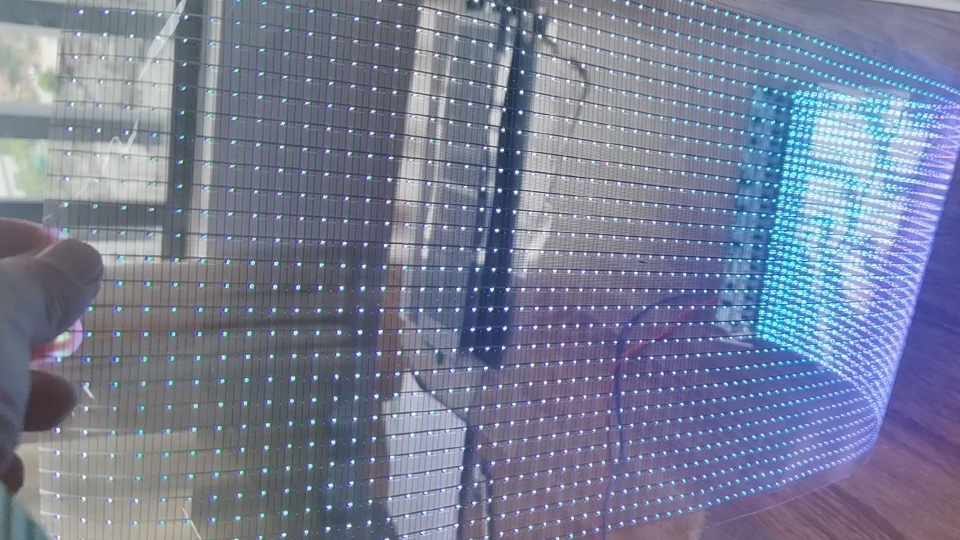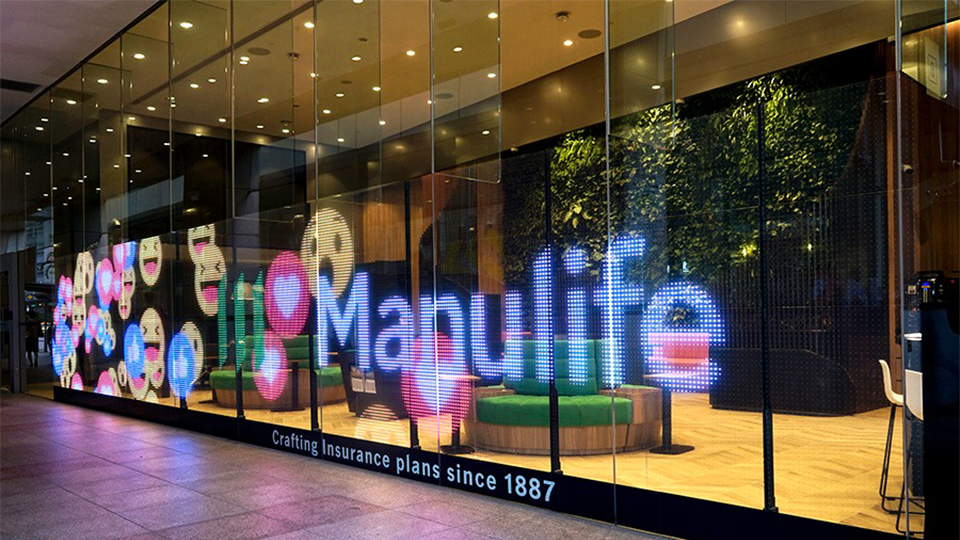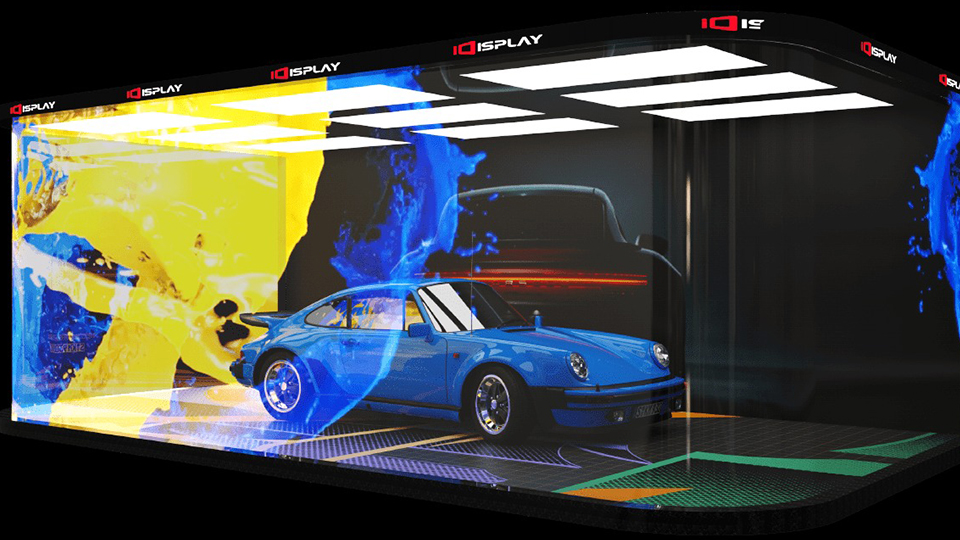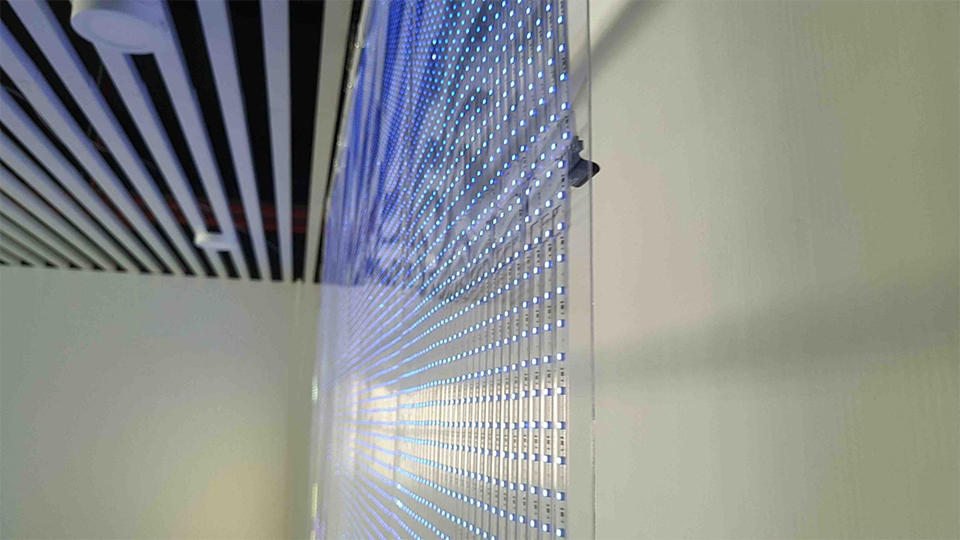
Traditional windows only serve the functions of transmitting light and ventilation. However, the emergence of the LED transparent film screen has transformed them into media for information dissemination and aesthetic expression. This technology turns the glass surface into a dynamic canvas, capable of maintaining transparency while playing high-definition content, completely changing the design logic of building facades and retail storefronts.
1. Three Core Advantages of LED Film Screen
High Transparency
By using miniature LED lamp beads and transparent substrates (such as PET film), the light transmittance can reach 80% – 97%, without affecting indoor lighting. For example, the P10 LED film screen of RTLED has a light transmittance of 97%, which is suitable for high-end commercial spaces.
Flexible Installation
The self-adhesive design can be directly attached to existing glass without complex renovations, and it supports applications on curved and irregularly shaped glass.
Energy-saving and Arbitrary Cutting
The low-power consumption characteristics of LED and its cuttability enable energy savings while maintaining high brightness. It can be flexibly cut according to your window glass.

2. Application Scenarios
Commercial Advertising
Retail storefronts dynamically display product information to attract customers, enhance brand image, and bring more sales opportunities for businesses.
Architectural Aesthetics
Office building glass curtain walls play artistic content, creating landmark “digital buildings”, effectively demonstrating creativity and modern technology, and enhancing the value and recognition of buildings.
Smart Home
Household windows can switch to a privacy mode or display interactive information such as weather and news. The Transparent LED film provides a more convenient and comfortable living experience and improves the intelligence level of homes.

3. The price of LED film screen
The price of LED film screen for window on the market is approximately $800 - $2000 per square meter, with a minimum order of 5 square meters, suitable for large projects. However, according to your visual requirements and other customized needs, the price may increase slightly.

4. How to Choose Your LED Film Screen
Transparency and Resolution
When choosing an LED film screen, transparency and resolution are two key determinants. For commercial advertising scenarios, it is recommended to choose a pixel pitch of P5 – P10 to achieve clear display effects while maintaining appropriate transparency and avoiding affecting the natural light passing through the screen.
Product Compatibility and Ease of Installation
Considering possible future upgrade or expansion needs, it is advisable to choose an LED film screen with good compatibility. In addition, the ease of installation of the product also affects the overall cost and project progress. Choose RTLED, and we will provide you with a detailed installation guide and equipment support to reduce unnecessary troubles for you.
After-sales Service
After-sales service is a factor that users cannot ignore when purchasing an LED film screen. Ensure that the manufacturer provides a reasonable warranty period and clarifies the maintenance and replacement policies within the warranty period. A fast – response technical support team can provide solutions in a timely manner when the equipment has problems, reducing downtime and ensuring the continuous operation of your business. It is preferable to choose manufacturers that provide long – term warranty and all – day technical support.

5. Future Trends: Technological Upgrades and Industry Integration
Thinner and More Flexible
Mini LED technology will further improve picture quality while reducing thickness.
Intelligent Interaction
Combined with touch – control and AI algorithms to achieve human – screen interaction.
Cost Reduction
With large – scale production, the price is expected to decrease by 30% – 50%, promoting civilian popularization.
Post time: Feb-20-2025

